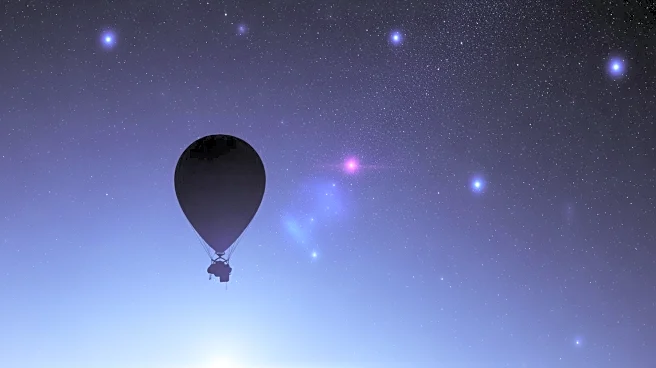What's Happening?
A recent episode of the Astronomy Daily podcast delved into several intriguing space discoveries, including the validation of Stephen Hawking's area theorem through the collision of two black holes. The podcast also discussed the resilience of moss spores
exposed to space conditions and the innovative Excalibur mission, which uses balloon-based telescopes to study cosmic phenomena. Additionally, the episode explored the mystery of the tilted orbit of the exoplanet TOI 3884, highlighting the complexities of planetary systems.
Why It's Important?
These discoveries are significant as they advance our understanding of fundamental cosmic principles and the potential for life beyond Earth. The validation of Hawking's theorem and Einstein's predictions through black hole observations enhances our comprehension of gravitational dynamics. The resilience of moss spores supports theories of panspermia, suggesting life's ability to survive interplanetary travel. Balloon-based astronomy offers new methods for observing cosmic phenomena, potentially revolutionizing space research. These developments contribute to the broader scientific discourse on space exploration and the nature of the universe.















